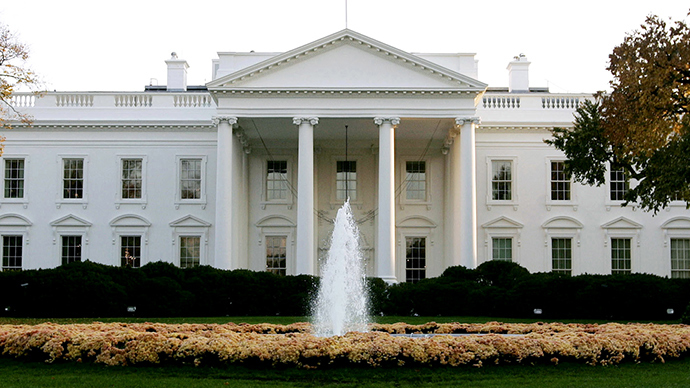White House and Senate close to agreement on curbing NSA spying

Even with the start of a month-long congressional recess only two weeks away, lawmakers in the United States Senate may soon vote on a long-awaited surveillance reform bill before heading home for the rest of summer.
Sen. Patrick J. Leahy (D-Vermont), the chairman of the Senate Judiciary Committee, told reporters this week that lawmakers in his chamber are almost ready to unveil a compromise bill that compliments the USA Freedom Act passed by the House of Representatives in May.
“We are very close to finalizing an agreement that incorporates the input of the administration, the privacy community and the technology industry,” Sen. Leahy told The Washington Post ahead of an article published by the paper late Wednesday this week. “These stakeholders are coming together behind my legislation, which will give our intelligence officials clear-cut guidelines, and will let the American people know that their privacy is going to be protected.”
Following last year’s disclosure of previously secret National Security Agency documents — specifically evidence of surveillance programs waged by the NSA against the American people — lawmakers in Washington have floated alleged reform efforts but have largely fallen short of advancing them out of Congress. Then when the House approved the USA Freedom Act two months ago by a vote of 303-121, critics said that the language contained came short of guaranteeing true reform with regards to the spy programs.
But according to those working closely on the Senate version, one of the biggest concerns raised by the House bill is eliminated in the latest draft. Now if its authors can succeed in unveiling the bill ahead of the imminent recess, real NSA reform may soon become a reality.
Of particular issue with the House version of the bill has been language that opponents said would still allow the intelligence community to conduct blanketing surveillance over Americans if approved. Ahead of May’s vote, the Electronic Frontier Foundation — one of the most adamant critics of the government’s surveillance operations — said they “cannot support a bill that doesn't achieve the goal of ending mass spying.”
“In particular, we are concerned with the new definition of ‘specific selection term,’ which describes and limits who or what the NSA is allowed to surveil,” the EFF said ahead of the House vote two months ago.
“The new definition is incredibly more expansive than previous definitions,” the EFF insisted, allowing the intelligence community the opportunity to conduct, in theory, “open-ended” searches against any which targets, intentional or not.
In the Washington Post this week, journalist Ellen Nakashima writes that: “The key compromise in the Senate was to clarify the definition of a ‘specific selection term,’ to make explicit that it could not, for instance, mean a ‘term based on a broad geographic region, including a city, state, zip code or area code,’ according to a draft copy of the bill obtained by The Post.” Additionally, she reported, the Senate version specifically says that the purpose of the selection term is “to narrowly limit the scope” of targets sought by the government, and contains provisions that would create a panel that would voice “individual privacy and civil liberties” before the otherwise obscured Foreign Intelligence Surveillance Court and require declassification reviews of any surveillance court opinions.
Speaking of the Senate version, Leahy said in a statement on Tuesday this week that he’s “far more encouraged that we can finally come up with some legislation that will do two things,” adding that the legislation would create “clear cut guidelines of what [intelligence agencies] can and cannot do” and “let the American people know that their privacy is going to be protected.”
“We strongly support that language,” Center for Democracy & Technology senior counsel Harley Geiger, who proposed changes concerning the “selection term” issue before Congress, told the Post. “This is one of the key ways that the bill aims to prevent bulk collection.”
“While there are a number of additional steps that must take place before this critical bill becomes law, we are encouraged by the recent progress in the Senate, and we are dedicated to achieving this Presidential priority of meaningful reform that both increases transparency and enhances privacy protections while maintaining national security," added the National Security Council in a statement delivered by an agency spokesperson to The Hill this week.
Even if multiple stakeholders say they’re happy, however, Leahy and company will have to act fast before their colleagues conclude this congressional session and head home for recess. The National Journal reported this week that if the Senate bill advances ahead of recess, aides agree that it will only have time to get straight to the floor — which Majority Leader Harry Reid (D-Nevada) reportedly won’t favor.
"The bottom line is, it's really still kind of all up in the air as what's going to happen," said one Democratic aide close to negotiations told the Journal.














